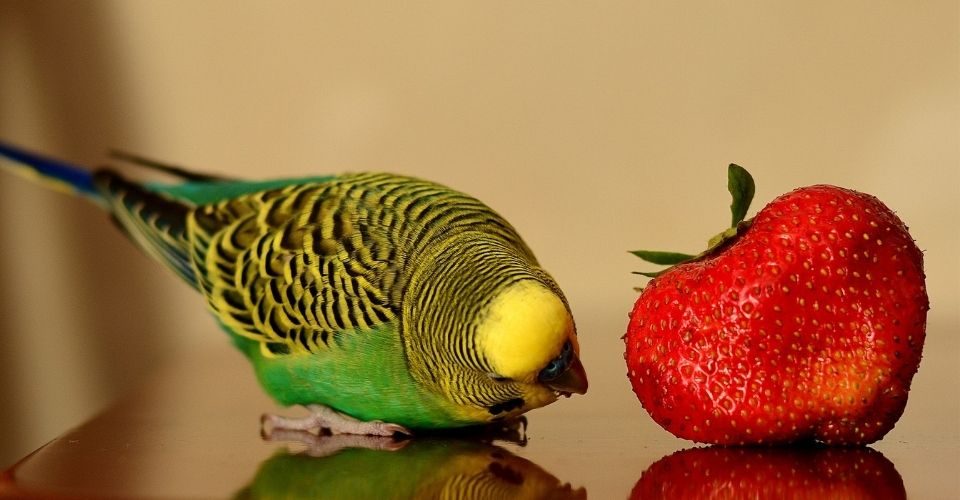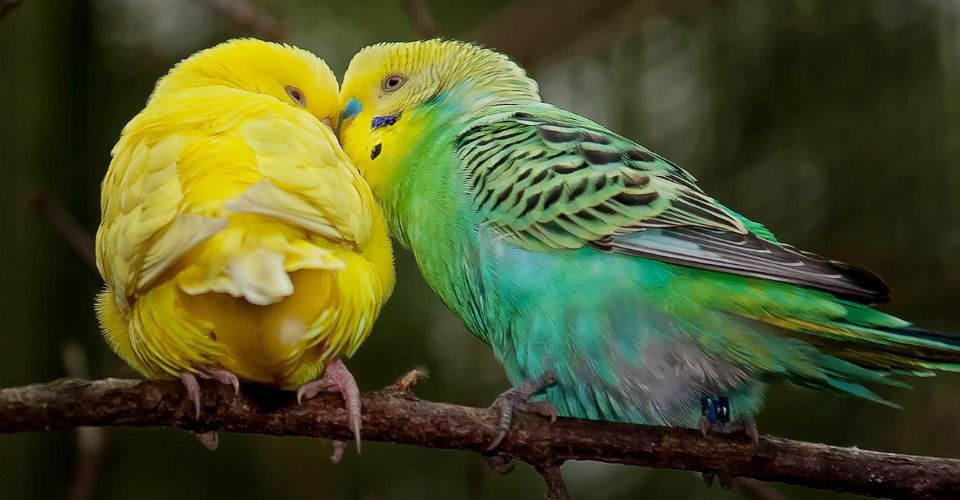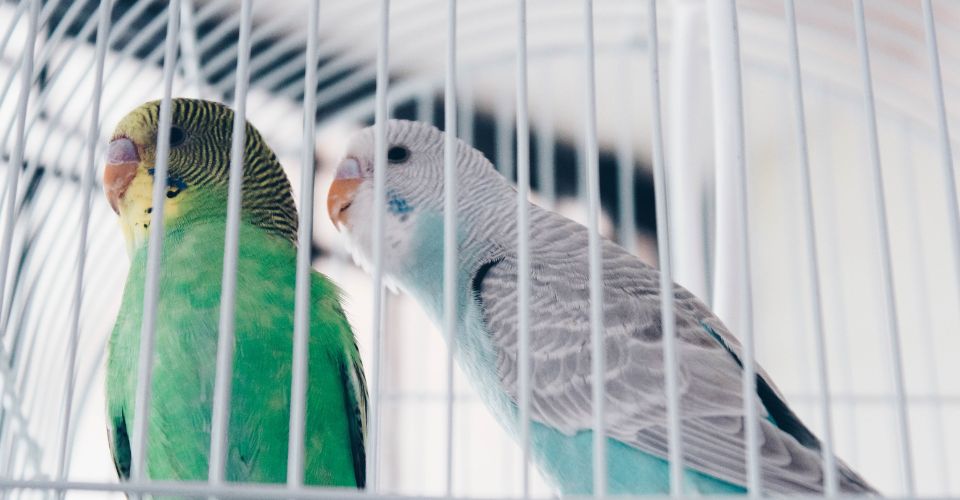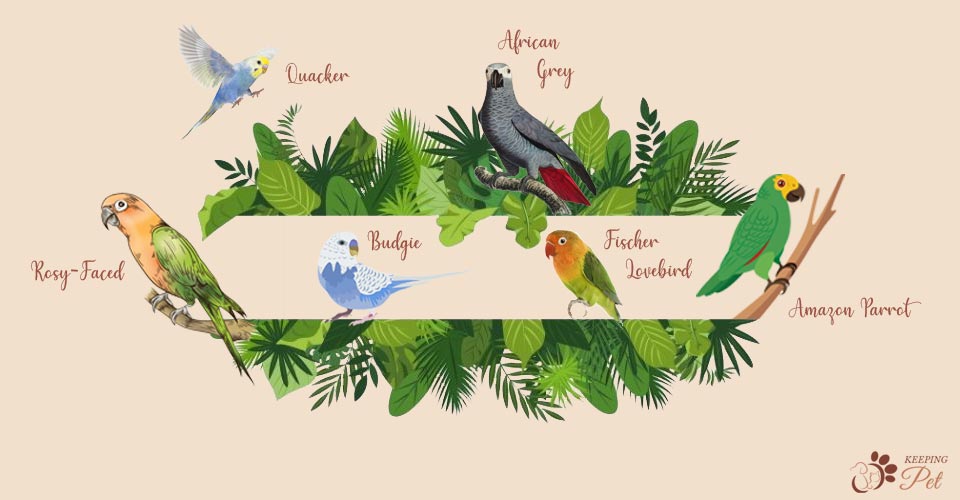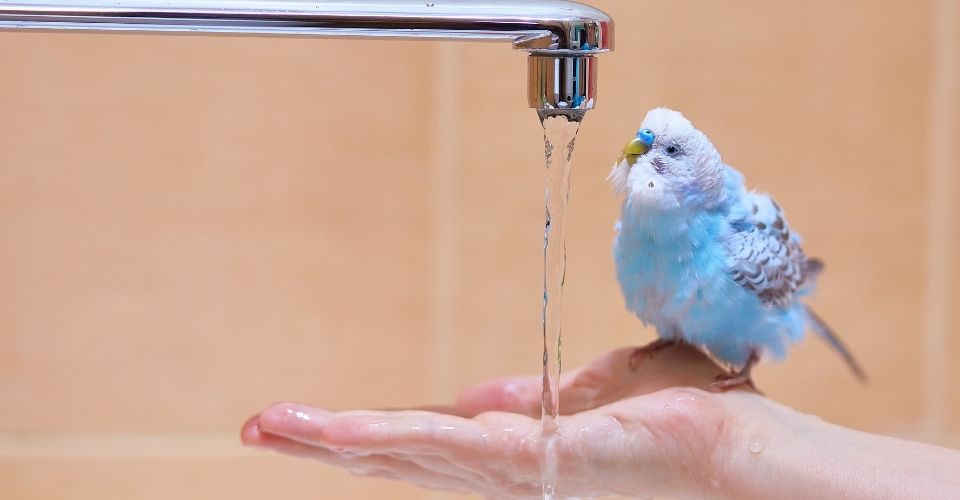Everyone wants their parakeet to be happy and healthy, especially when it comes to their diet or food plan. In the wild, parakeets fulfill their nutritional requirements from different seasonal seeds, fruits, and vegetables, as they have access to many kinds of exotic fruits and vegetables.
However, when it is a pet bird, it has limited options available—it is completely dependent on its owners to provide for its nutritional requirements.
Ideal Parakeet Diet
Generally, parakeets rely only on their staple (seed- or pellet-based) food to fulfill their nutritional and growth requirements. Similarly, they also require fresh fruits and vegetables to stay healthy and fit. The ideal parakeet diet should be around 50% pellets, and 20% seeds, and the remaining 30% should be fresh fruits and vegetables.
Caution!
Not all fruits and veggies are safe and healthy for parakeets, so before offering them any new fruit or veggie, you should first confirm if it is safe for parakeets are not.
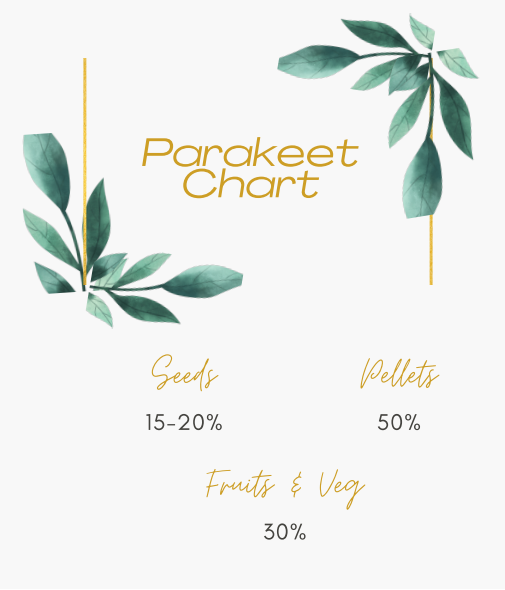
Strawberries and Parakeets
Strawberries are one of the most refreshing and versatile fruits. We love to add them to our beverages, fruit salads, cereals, etc. Strawberries not only refresh our taste buds but also offer many health benefits to humans.
Considering the strawberries’ refreshing taste and health benefits, bird owners want to share some of them with their birds. But a few questions may arise in their minds before doing so. Can parakeets eat strawberries? What if they consume strawberries? And more.
These are the questions that we will address in the lines below.
Can Parakeets Eat Strawberries?
Yes, parakeets can eat strawberries. Strawberries make not only a safe but a healthy snack for parakeets as they are loaded with useful antioxidants, minerals, and vitamins. But it is not just the health factor that makes them suitable for parakeets; it is also something that parakeets love to eat.
However, it should be given in moderation. As the old maxim goes, “excess of everything is bad,” if parakeets are given more strawberries—or for that matter, any food—than the recommended, it may prove perilous for their health.
Nutritional Benefits of Strawberries for Parakeets
There are many health benefits of strawberries for parakeets. Strawberries are considered healthy fruits for the parakeets, as long they are served in a moderate amount. They are rich in several nutrients, which directly benefit parakeets’ health. As per the experts, one or two strawberries every other day are safe and healthy for parakeets.
Nutritional Chart of Strawberries
Table 1: Nutritional value per 17 gram (1 Large Strawberry)
| Nutrition | Values per 17g (1 Large Strawberry) |
| Protein | 0.12 g |
| Carbohydrates | 1.3 g |
| Magnesium | 2.34 mg |
| Potassium | 27.5 mg |
| Vitamin C | 10.6 mg |
| Vitamin A | 0.18 µg |
| Fiber | 0.36 g |
| Folate | 4.32 µg |
| Salt | 17 µg |
| Sugar | 0.88 g |
As strawberries are rich in nutrition, they have many health benefits for parakeets. If a parakeet has issues with digestion and bowel movement, strawberries are the ready substitute for the medicine—though you would need to confirm this from a vet.
The high water content in strawberries results in softer feces. This condition may be confused with diarrhea, but it is polyuria, a harmless condition. Similarly, there are many other health benefits of strawberries for parakeets. Some of the essential nutrients present in strawberries that help in the body functioning of parakeets are discussed below.
Vitamin C
Vitamin C is a potent antioxidant, helping improve the immune system of parakeets to combat illness or injuries. The stronger the immune system, the more vigorous the defense mechanism will be. Strawberries are a great source of vitamin C and many antioxidants that improve the immune system of parakeets.
It also aids them in staying calm in stressful situations. In addition, vitamin C prevents heart and neurological diseases in parakeets.
Fibers
Strawberries are rich in fibers, which help improve the digestive system of parakeets. These fibers also help in the development of useful bacteria in the stomach of parakeets and ensure that no disease emerges because of poor digestion in them.
Strawberries’ leaves, stalks, and seeds provide extra cellulose that helps in the bowel movement and digestion of food, thus preventing parakeets from many potential gastrointestinal diseases.
Manganese
Manganese is a co-enzyme, which enhances the metabolic function of the parakeets. Since parakeets are active birds, manganese would do its job to keep the metabolism balanced.
Folate
Strawberries provide folates to parakeets that aid in optimal tissue development and cell functioning, letting the parakeet grow fully and healthy. It is also essential for producing white blood cells, red blood cells, and even cell division.
Potassium
As strawberries are rich in nutrition, they have many health benefits for parakeets. If a parakeet has issues with digestion and bowel movement, strawberries are the ready substitute for the medicine—though you would need to confirm this from a vet.
The high water content in strawberries results in softer feces. This condition may be confused with diarrhea, but it is polyuria, a harmless condition. Similarly, there are many other health benefits of strawberries for parakeets. Some of the essential nutrients present in strawberries that help in the body functioning of parakeets are discussed below.
Vitamin C
Vitamin C is a potent antioxidant, helping improve the immune system of parakeets to combat illness or injuries. The stronger the immune system, the more vigorous the defense mechanism will be. Strawberries are a great source of vitamin C and many antioxidants that improve the immune system of parakeets.
It also aids them in staying calm in stressful situations. In addition, vitamin C prevents heart and neurological diseases in parakeets.
Fibers
Strawberries are rich in fibers, which help improve the digestive system of parakeets. These fibers also help in the development of useful bacteria in the stomach of parakeets and ensure that no disease emerges because of poor digestion in them.
Strawberries’ leaves, stalks, and seeds provide extra cellulose that helps in the bowel movement and digestion of food, thus preventing parakeets from many potential gastrointestinal diseases.
Manganese
Manganese is a co-enzyme, which enhances the metabolic function of the parakeets. Since parakeets are active birds, manganese would do its job to keep the metabolism balanced.
Folate
Strawberries provide folates to parakeets that aid in optimal tissue development and cell functioning, letting the parakeet grow fully and healthy. It is also essential for producing white blood cells, red blood cells, and even cell division.
Potassium
Strawberries contain a small amount of potassium, enough for stable muscle contractions, fluid balance, and sending the right nerve signals. Potassium also plays a critical role in regulating the blood pressure of parakeets. Uncontrolled heart rate is dangerous for parakeets; they can even die if it prolonged. Therefore, eating strawberries could be life-saving for your parakeet as it helps them maintain a steady heart rate.
Parakeet Eating Strawberries Health Benefits
- Improved Immune System
- Improved Bowel Movement
- Optimal Tissue Development
- Controlled Blood Pressure
Are Strawberries Harmful to Parakeets?
No, strawberries are not harmful to parakeets. However, excess of everything is dangerous for both humans and birds, as mentioned earlier.
You can feed them strawberries once or twice a week. If your parakeet loves it, 1 – 2 strawberries every other day won’t hurt.
Can Parakeets Eat Strawberries Seeds?
Parakeets can also eat the strawberries’ seeds. In fact, many parakeets enjoy picking seeds off the flesh of the strawberries. In addition, strawberry seeds contain fibers, which have excellent benefits, as mentioned above.
Even the leaves of strawberries, if thoroughly washed, can be given to parakeets. Some parakeets love to eat them, though some prefer to eat the fruit portion only.
How to Feed Strawberries to Parakeets?
Feeding Parakeet Strawberries!
- Take off the stems
- Wash them thoroughly
- Chopping into bite-sized chunks is not necessary as strawberries are soft, but your little birdie would appreciate it if you did
- Don’t make it a dietary staple—never give more than one or two strawberries every other day
Step 1: Wash Strawberries
Strawberries are a very delicate fruit. Like other ground fruits, strawberries also contain pesticides, which are really harmful to parakeets. If the pesticide-infected strawberries are given to birds, it can cause serious damage to their digestive system. Therefore, it is required to remove all the dirt and pesticides accumulated on them.
Before serving them strawberries, wash them properly, and put them in a saline solution (salt+ warm water) for 1 – 2 minutes. It will remove all the dirt, even from the inside of the fruit.
Step 2: Cut Into Small Chunks and Warm It
It is challenging to change the food habit of a grown-up bird. At first, try to offer your parakeet a whole strawberry. But if it resists, cut them into bite-size chunks, it will ease the ingestion process.
Some parakeets love the aromatic and soft fruits like parakeets, but others are not thrilled about it. So if your parakeet seems not to be excited about fruit treats, you can try warming it up a little. This will make the fruit softer and more aromatic—making it highly irresistible for parakeets. It should not be too hot, though, as it can hurt parakeets’ sensitive internals.
Add a small portion of the fruit with the pellet- or seed-based food of the parakeet. Look for the bird’s body language; it will help you understand the bird’s reaction to the new food.
Step 3: Serve Strawberries With Greens
Sometimes birds get scared by the bright red color of strawberries; they are “born to fear red.”
Give them the strawberries with leaves or toss chopped strawberries in the parakeet’s fruit salad. Fruits and veggies can make up to 30% of a parakeet’s diet. Make the red diminished in appear, howsoever you deem it fit.
Place the fruit near the water, parakeets love to drink water after taking a bite of food.
Step 4: Remove the Uneaten Fruit
Once your parakeet eats the food, remove the dish and water pot from the cage and immediately clean them.
When it starts eating the fruit, try to give it the whole fruit without cutting them into chunks. It will help you understand which part of the fruit it likes and which it avoids. Cut strawberries into chunks only if the bird doesn’t show any interest in the food.
One of the best practices to train parakeets for eating is feeding by hand. Try to hand feed them with strawberries. It will help them overcome the fear of the red color; they won’t appear scared and distressed anymore. More so, this will strengthen your bond with your little birdie.
Beware of the Sugar Intake of Your Parakeet
Strawberries contain many vitamins like vitamin C, which can help in building up their immune systems. However, strawberries are high in sugar, which can affect a bird’s health. Therefore, it should make up only be a small portion of your birds’ food.
Final Verdict: Can Parakeets Eat Strawberries?
Absolutely! Strawberries are not only safe and healthy for parakeets but are also savored by parakeets. The benefits of parakeets eating strawberries dwarfs any hazards associated with them. You can minimize the hazards by feeding them strawberries in moderation. But since much depends on the factors peculiar to every bird, we recommend taking an opinion from a vet before making strawberries an integral part of your parakeet’s food.

